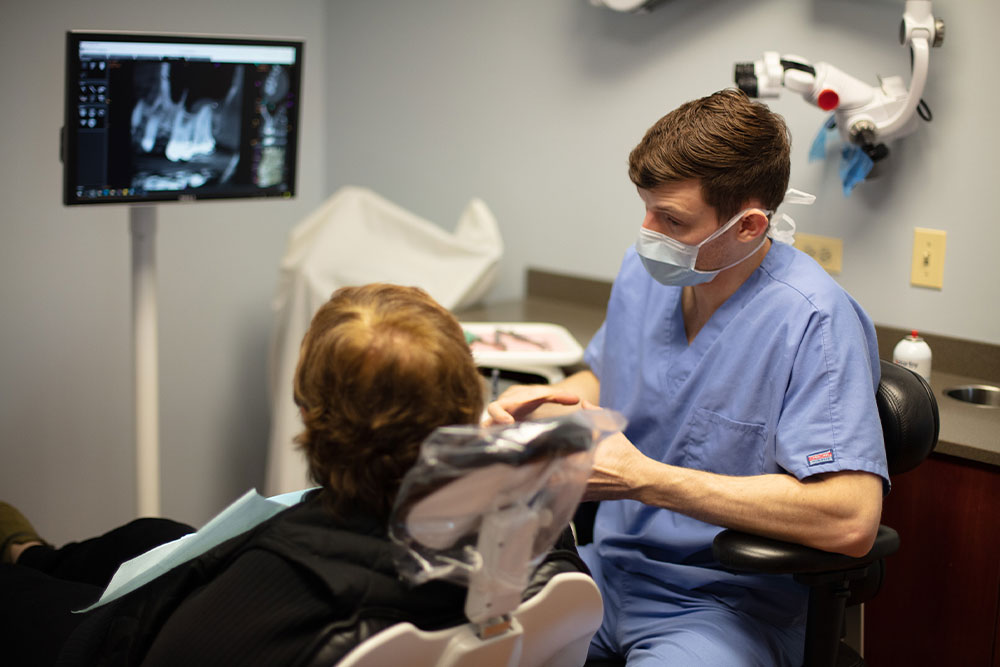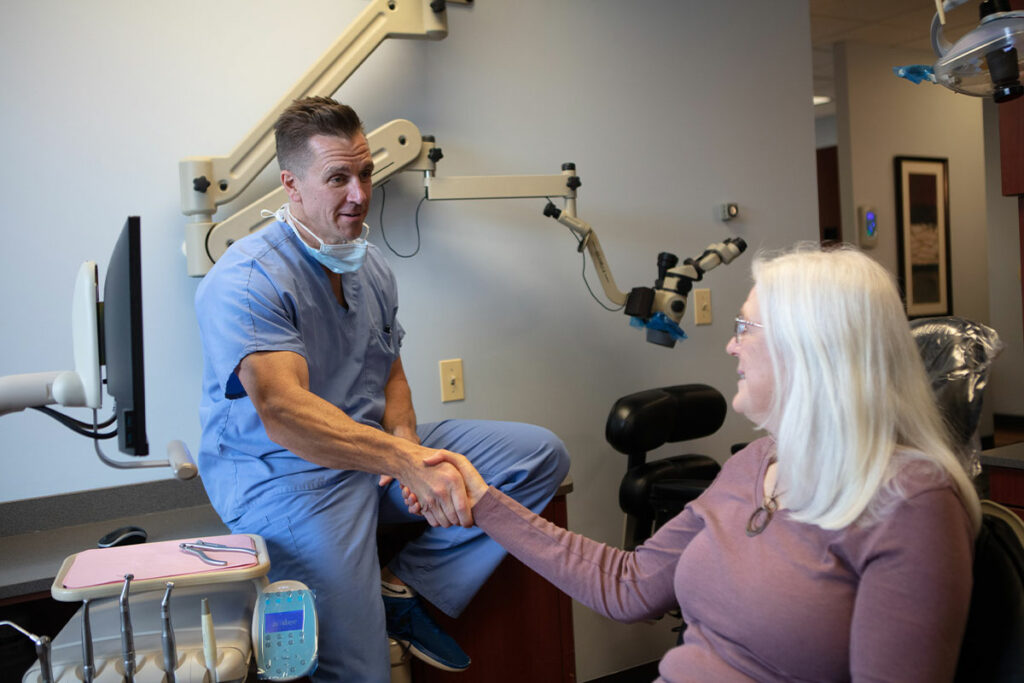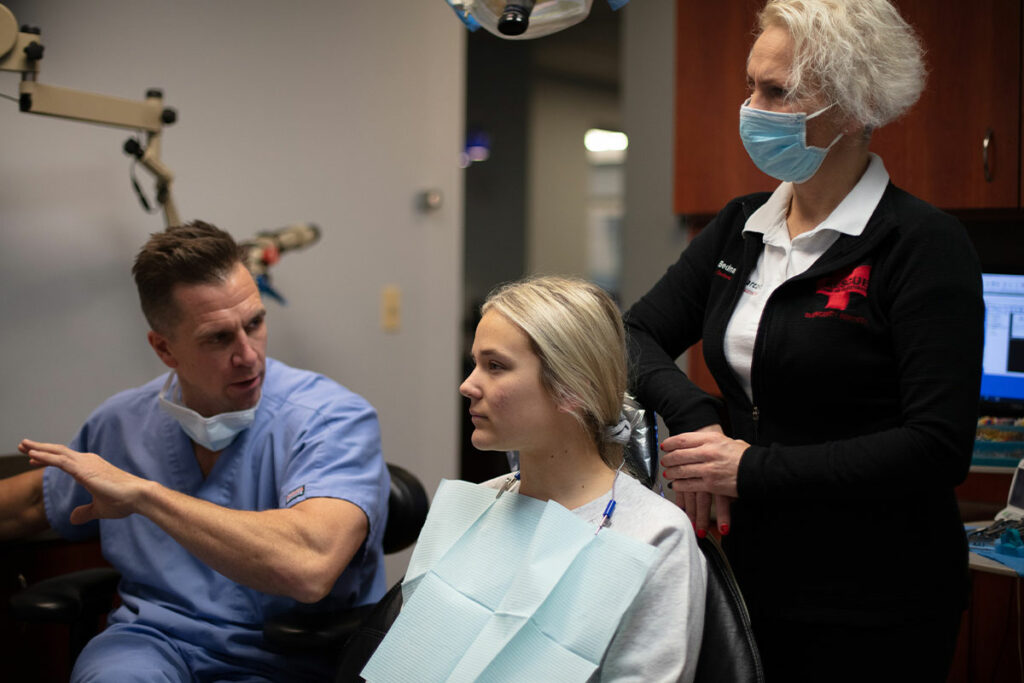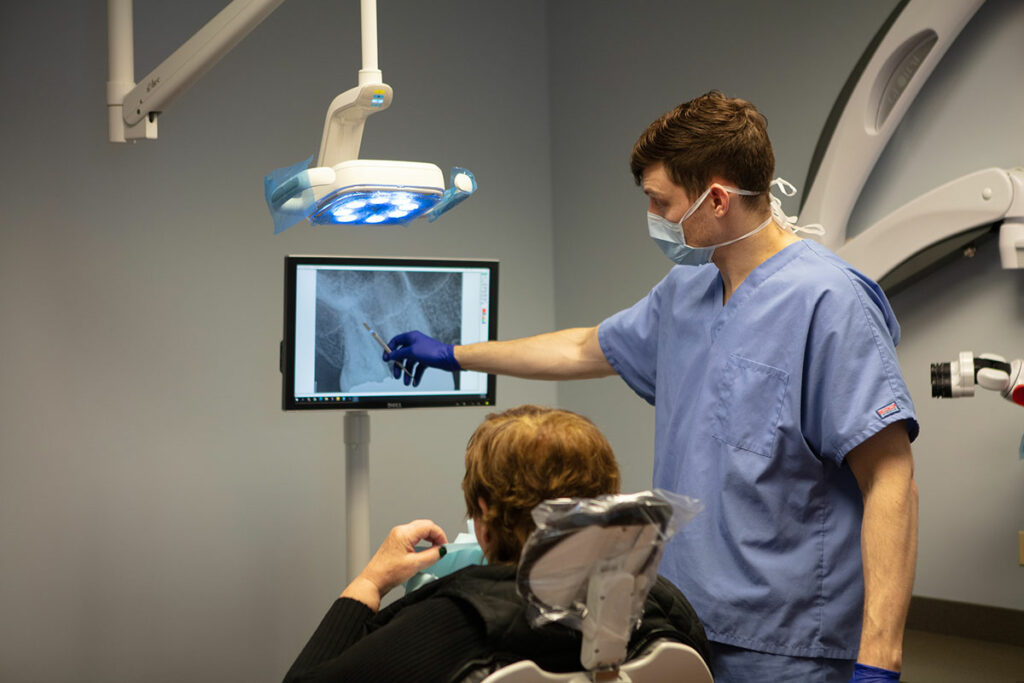FAQs
What Is A Root Canal?
Root canal treatment is performed to treat inflamed or infected pulp tissue in the core of the tooth.
During a root canal, an endodontist will remove the diseased pulp tissue and bacteria from the canal system, clean and disinfect the inside of the tooth and then tightly fill and seal the internal aspect of the tooth to prevent future infections.
Patients may need a root canal if they have a cracked, damaged tooth or a particularly deep cavity. Incorrect or weakened fillings may also lead to needing a root canal.
According to the American Academy of Endodontics, root canals are highly effective for saving the natural teeth of patients and help maintain regular chewing, biting and appearance.
Is Root Canal Treatment Painful?
Root canal therapy has a bad reputation for being a very painful and uncomfortable endodontic procedure. This notion, however, is highly inaccurate.
Our endodontists use high-quality anesthetics to ensure our patients experience no pain or discomfort during treatment and to limit discomfort during recovery as well.
Although it is normal for patients to experience some minor discomfort following a root canal procedure, any pain or discomfort is usually minor and can generally be adequately managed with over-the-counter anti-inflammatory medications and/or a cold compress to reduce swelling.
What Is Endodontics?
Endodontics is a branch of dentistry officially recognized by the American Dental Association. Endodontics focuses on the study and treatment of the pulp (soft tissues containing nerves and blood vessels) and the hard tissues (dentin and cementum) of the tooth that surround and protect the pulp.
Endodontists provide treatments specifically associated with the treatment of the roots, pulp, and surrounding tissues of the teeth.
What language do you speak in your offices?
Thank you for asking! We have team members that can speak Polish, Spanish, and Russian, in addition to English. If you have concerns about our team members being able to communicate with you effectively, please contact our office and we will arrange competent care to the best of our ability.
Should I Be Worried About X-Rays?
No, patients of Northwest Endodontics do not need to be concerned about X-ray radiation. While X-rays are usually a necessary party of treatment, we use advanced non-film, digital radiography which requires about 90% lower radiation levels than those required for traditional, film-based dental X-rays.
Digital X-rays are also immediately available for viewing in addition to being easily enhanced, optimized, stored, and shared with your referring dentist.
If you have any concerns about your dental X-rays or the precautions we take to protect our patients from X-ray radiation, we welcome you to contact our office.
Should I Be Concerned About an Infection Following Treatment?
Our entire team adheres to the strictest safety standards and sterilization protocol designed to eliminate the risk of infection and increase the safety of our dental office. We closely follow the official recommendations and requirements of the American Dental Association, the Centers for Disease Control and Prevention, and OSHA.
What To Do After Endodontic Treatment?
When we have completed your endodontic treatment, we will provide you with all necessary aftercare instructions. Our office will also forward a record of your treatment to your primary dentist for your records. If you need restorative treatment, such as a permanent dental crown following a root canal or after dental implant placement, we recommend contacting your dentist right away to schedule your follow-up restoration appointment.

 MEET DR. FITZGERALD
MEET DR. FITZGERALD
 MEET DR. PRZYBYLO
MEET DR. PRZYBYLO
 MEET DR. ATASSI
MEET DR. ATASSI
 PATIENT FORMS
PATIENT FORMS PATIENT PORTAL
PATIENT PORTAL FINANCING AND INSURANCE
FINANCING AND INSURANCE YOUR FIRST VISIT
YOUR FIRST VISIT









